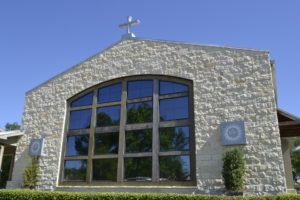There are two competing and yet insufficient doctrinal perspectives concerning church laity. Laity is a term applied to those who are not governing leaders in the church. One perspective is that laity is distinctly divided from the leaders and only do remedial jobs in the church leaving ministry up to those with priestly or pastoral authority. The other popular perspective is that there is no laity that there ought to be no divide between leader and non-leader – in essence, there are no leaders nor laity. A third more balanced approach that borrows the truth of each is that there is a divide of authority, but not of ministry.
Traditional church structure
The majority of churches operate under a structure where those who are officially ordained as ministry leaders minister and do all the important work of the church whereas the laity assists in subservient helping roles.
 Most of the laity in these structures chose not to do participate in much as there is little interest in what they are permitted to do. This structure has been predominant for many years leaving many feeling that church life is irrelevant to their “secular” life where they can use their gifts and talents out in the marketplace and culture.
Most of the laity in these structures chose not to do participate in much as there is little interest in what they are permitted to do. This structure has been predominant for many years leaving many feeling that church life is irrelevant to their “secular” life where they can use their gifts and talents out in the marketplace and culture.
House Church movement
In response to this environment a movement has emerged that removes any divide between leaders and laity seeing all as the same with no hierarchy of authority. Much of this structure is lived out in what is known as house churches. It would be difficult to reproduce this on a larger scale because the organization only flows from having some sort of designated leader. Anytime a doctrine is devised in response to an abuse of power or abuse of practice, then it often has its own level of problems.
The biblical role of the laity
The third perspective creates a healthy balance and bears a greater responsibility for both leaders and laity. In this environment, the leaders equip the laity, the saints, for the work of the ministry and then they do the ministry. They are released to be who they are in Christ to the fullest. The leaders serve them by raising them up into their own freedom teaching them how to use their talents to the fullest expression both in and outside the church.
The priesthood of all believers
Revelation 5:10 explains that all believers are a Kingdom of priests. In the Old Testament, the Priest mediated between God and man and this divide was broken with the finished work of Christ. Now all of us can approach God as saints. Therefore, when we speak of leadership, this is not in the context of having this kind of role like the Old Testament Priests, for we are all priests in this sense. Leaders are there to nurture us into the Lord as fathers and teachers, not as mediators between God and man.
Concluding thoughts
Thus the first and second perspectives lend helpful analysis for the third more healthy perspective. There is a proper place for both leaders and laity, but as the laity grow they will need their leaders less and differently as maturity is birthed analogous to how children need less and different aid from their parents as they grow. To say that there need not be any leaders is to say that no one needs parents, neither is true, and both have a proper role.






